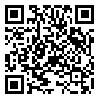BibTeX | RIS | EndNote | Medlars | ProCite | Reference Manager | RefWorks
Send citation to:
URL: http://hii.khu.ac.ir/article-1-2492-en.html
Background and Aim: This paper aims at the analysis of the definitions and categorizations of the realm of “Information Ethics” to criticize assumptions and clarify points of departure for introducing a new definition and categorization.
Method: I used documentary research method and conceptual analysis approach. This method and approach is the best fits with the goal of pursuit roots of social concepts and their pre-assumptions. After collecting all literature of the domain of “Information Ethics”, I tried to extract core definitions and categorizations and analyze their assumptions and points of departure. Then, I used the concepts extracted from all definitions and some aspects of the “General theory of Practice” (Pierre Bourdieu) and “Deconstruction” (Jacques Derrida) to introduce new definition and categorization of the domain of “Information Ethics”.
Results: Results shows that 20 original definitions have been offered and two main stream point of departure have been adopted, however, some other views such as legal, societal, Islamic, Marxian, Habermasian approaches have been introduced too. I adopted “access” and “position” as original points for categorization and used Derrida’s and Bourdieu’s viewpoints to offer a new sociological definition. I categorized social groups by their valuation on information production and consumption on the basis of Fuches’ viewpoints. Four social groups distinguished as “information consumer”, “prosumer (information producer-consumer)” “information producer” and “information governor”. Freedom of expression, censorship and content conrol and filtering is questions of the individuals that put in to the “position” of “information consumer”. Information security and information piracy is the core questions of information producers and information governors. Eventually, privacy, intellectual property and plagiarism is the questions of information procumers & information producers.
Originality/Value: originality of this paper is about its new approach in the definition of “Information Ethics”. By this categorization we can argue about the “access problem” in terms of the “position” of individuals or groups in the production, consumption or governance of information
| Rights and permissions | |
 | This work is licensed under a Creative Commons Attribution-NonCommercial 4.0 International License. |






